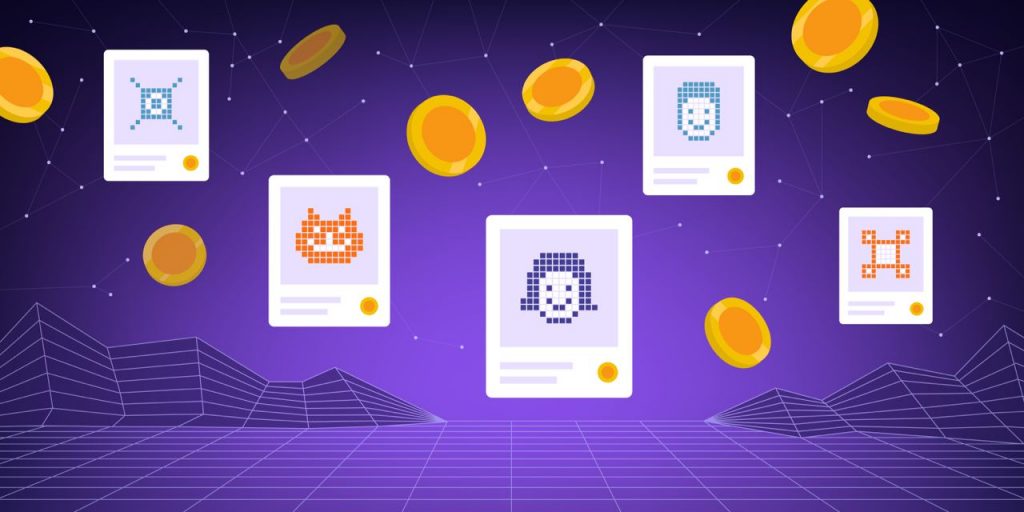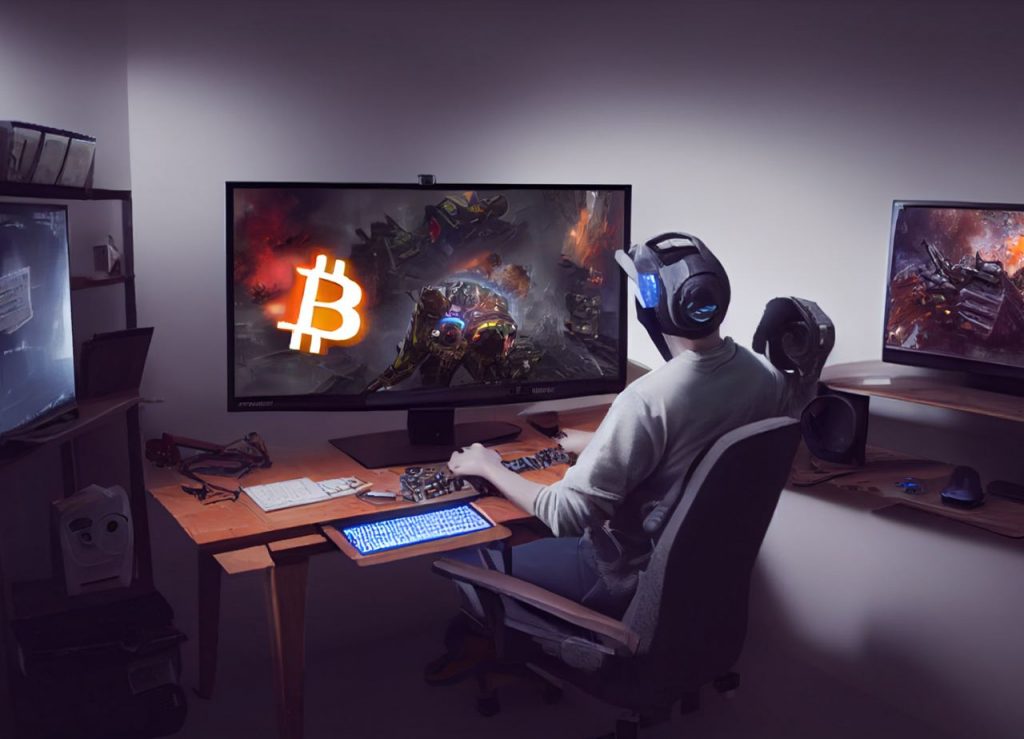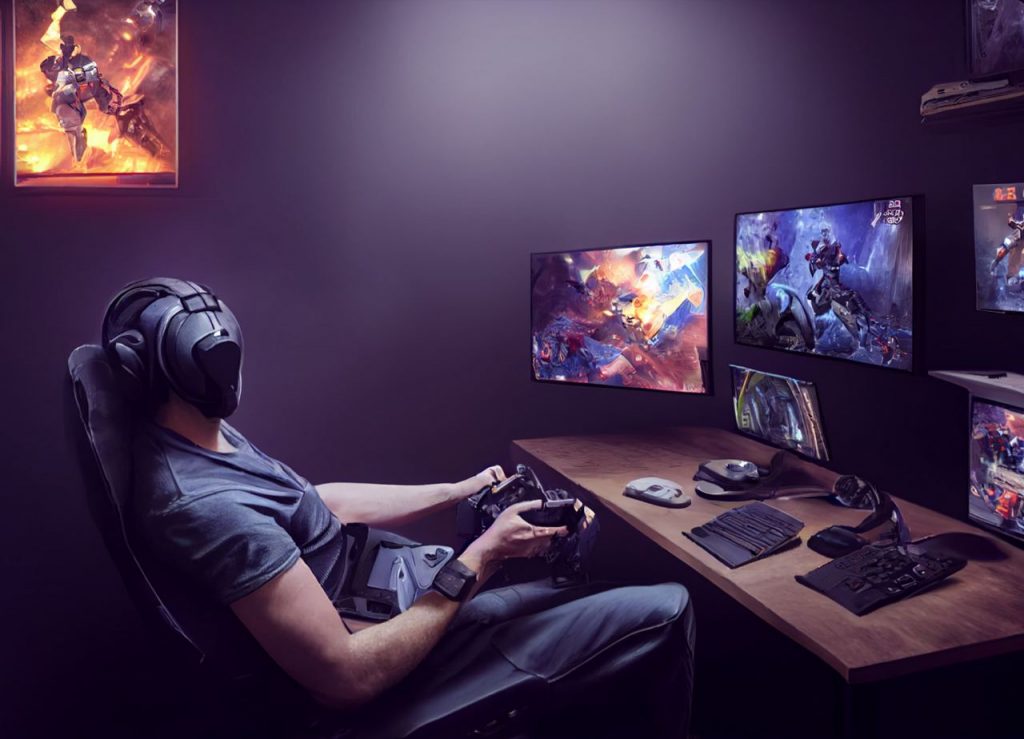
Blockchain technology is revolutionizing how we interact with digital systems, providing an immutable and secure platform for data exchanges. In recent years, blockchain has gained traction in the gaming industry to create immersive online experiences. The blockchain-based virtual environments give players more control over their assets and unprecedented levels of engagement within game worlds.
With blockchain technology underpinning these new games, developers can offer players greater rewards for playing, such as non-fungible tokens (NFTs) that can be traded outside of game worlds. This post examines how blockchain is used in gaming, what benefits it brings to the industry, how it adds value to projects, and its predictions for the future. Let’s dive into blockchain in gaming and see what the future holds.
Few Facts:
- By 2022, the blockchain gaming market is projected to grow to USD 1.5 billion.
- Non-fungible tokens (NFTs) have become increasingly popular among gamers due to their ability to store unique digital items securely on the blockchain.
- More than 30 million wallets are now used for blockchain games globally – an increase of 20% in 2020 alone.
What is blockchain, and how does it work?
Blockchain is a distributed ledger technology that stores data in immutable records. It allows for secure and transparent digital transactions between two or more parties without third-party intervention. This type of blockchain system creates virtual environments and digital assets that are tamper-proof and traceable by users.
Blockchain technology has the potential to revolutionize the gaming industry by enabling developers and players to create, own and trade digital assets with trust. Blockchain-based games are more secure and offer gamers a range of benefits, such as enhanced in-game experiences and higher levels of engagement.
Blockchain is used in various industries, from finance and logistics to healthcare and gaming. It provides a backbone for digital assets and transactions, making it the perfect solution for companies that need secure data exchanges. Blockchain technology will generate $60 billion in business value by 2024.
According to a survey from Juniper Research, blockchain could reduce gaming industry costs by up to $20 billion annually by 2022. Blockchain technology can improve the security of gaming systems, making them more resistant to hacking and protecting game assets from theft or fraud.
Blockchain technology has been adopted across platforms such as PC, mobile, and console games in the gaming industry. It is used to create virtual environments that mimic the properties of blockchain, such as transparency and trust. This allows developers to offer players a greater range of rewards for playing their game and also enables them to trade digital assets without fear of fraud or manipulation.

What advantages does technology bring to the gaming industry?
Blockchain is used in gaming to give players more control over their assets and unprecedented levels of engagement within game worlds. It also allows developers to create digital items that are unique and valuable, giving them the ability to set up markets for trading these digital assets between gamers.
Blockchain technology benefits the gaming industry through greater transparency, trust, and security. Using blockchain-based virtual environments, developers can create secure and reliable games, allowing players to trade digital assets without fear of manipulation or fraud.
Blockchain technology also allows the creation of nonfungible tokens (NFTs), unique digital items that can be traded with other gamers. This creates a marketplace for virtual assets, enabling players to monetize their in-game progress and earn rewards for playing.

Blockchain in Gaming Industry
Blockchain is transforming the gaming industry, and here are some real-world examples of how it has been adopted.
One of the most exciting developments in gaming is the use of non-fungible tokens (NFTs). NFTs are blockchain-based digital assets that represent real or virtual items, and they have been used to create true ownership within the gaming industry. An example of a blockchain-based game using NFTs is Axie Infinity, which allows players to purchase and trade unique digital creatures known as Axis. Players can also breed their Axis to create new ones with different attributes and characteristics.
Another blockchain-based game is Gods Unchained, which uses this technology to provide true item ownership for in-game cards. Players can purchase, trade, and even create their own cards by opening blockchain-based packs. This makes a new market for virtual items, as players can buy, sell, and even create their blockchain-based items.
This technology is also being used to power blockchain-based gaming platforms such as BitGuild, a blockchain gaming platform where players can purchase, trade, and even create blockchain-based games. This is just one of the many blockchain-based projects that are revolutionizing the gaming industry by providing true ownership of in-game items.
There are many other examples of blockchain, we, at FortySeven, have created a number of projects for our clients, including games, with our own marketplaces developed. If you want to implement your idea into a ready market solution, speak to our expert.
Overall, blockchain technology has brought many new possibilities to the gaming industry. With blockchain’s decentralized, secure, and transparent nature, blockchain-based games can create new markets for virtual items and provide true ownership of in-game assets. The blockchain gaming industry is still in its infancy, but it could become a major force with the correct implementation.

Blockchain Brings Value To The Project
Blockchain is an innovative technology that offers several advantages to businesses, such as increased transparency and trust, improved security, and reduced costs.
With blockchain-based projects, data is stored on an immutable and secure distributed ledger. This makes it virtually impossible for malicious actors to manipulate or tamper with data, which provides businesses with greater trust and transparency.
Moreover, blockchain provides businesses with increased scalability and flexibility. Using blockchain-based projects, companies can scale quickly without worrying about the cost or complexity of managing massive databases or networks.
Blockchain technology is becoming increasingly accessible to developers of all levels due to the rapidly expanding range of blockchain tools and resources.
What are the predictions on blockchain in gaming?
Over the next few years, blockchain technology is expected to become an increasingly important part of the gaming industry. By providing players with true ownership of in-game items, this future cryptocurrency will create a new market for virtual assets and enable gamers to monetize their progress. Additionally, blockchain-based games will benefit from increased trust and transparency, as well as greater scalability and flexibility.
Blockchain technology could revolutionize the gaming industry in the longer term by enabling gamers to own their in-game items truly and further monetize their progress. Creating new markets for virtual assets will also provide developers with opportunities to develop unique blockchain-based games that can offer players unprecedented engagement and immersion.

Conclusion
It is clear that blockchain technology has a lot to offer the gaming industry, from providing players with true ownership of their in-game assets to creating new markets for virtual items. With blockchain’s decentralized, secure and transparent nature, blockchain-based games can create new gaming experiences. As this technology continues to gain traction over the next few years, it will be interesting to see how blockchain-based games will revolutionize the gaming industry. At FortySeven we have a unique expertise to implement your ideas into ready market solutions. Speak to our expert to know more.



